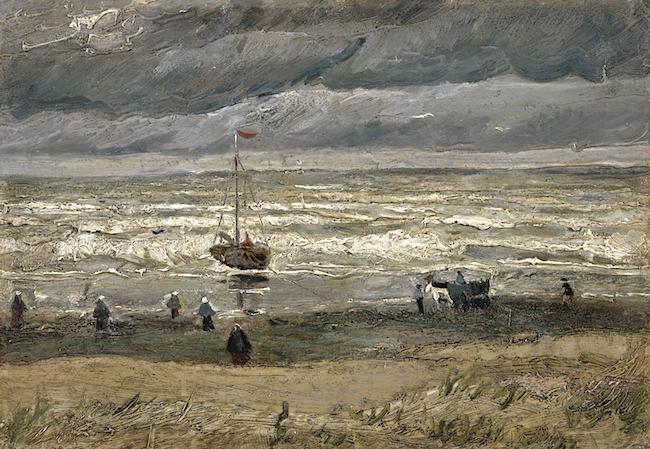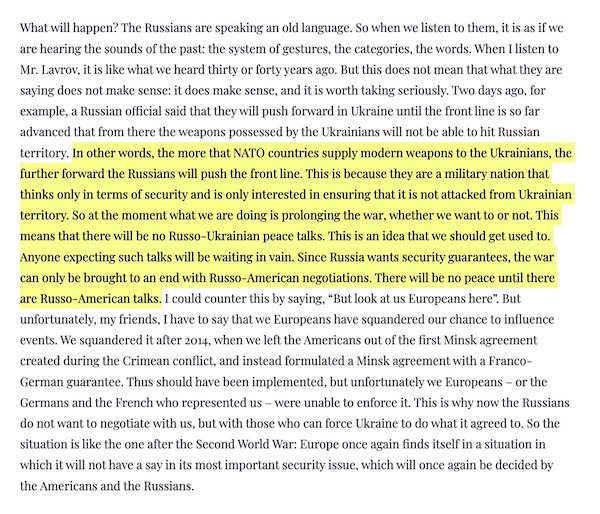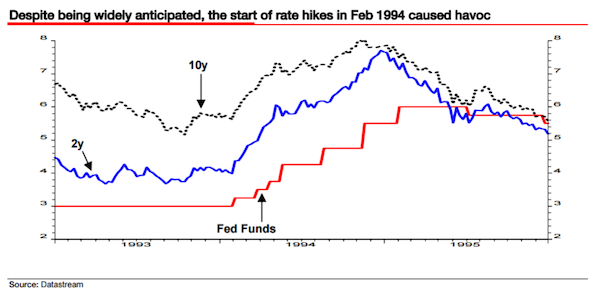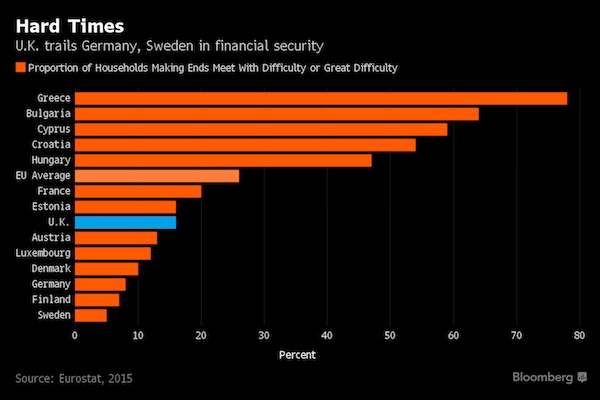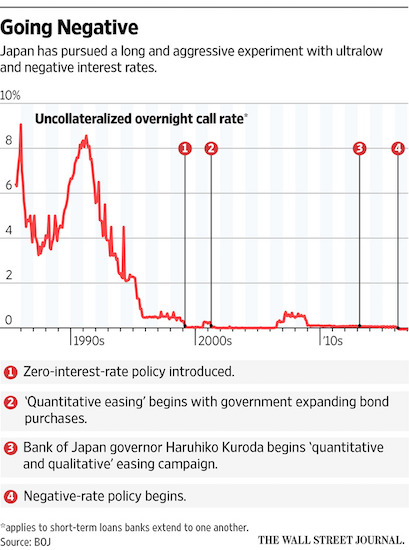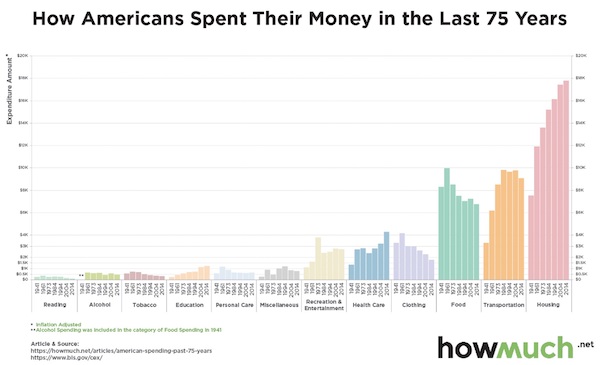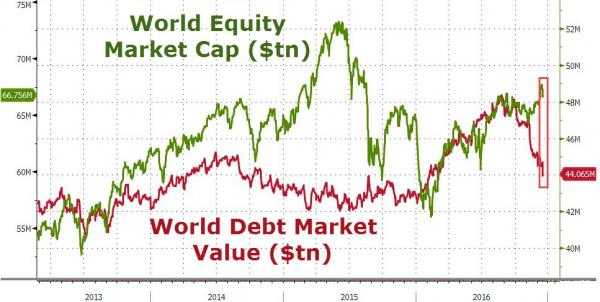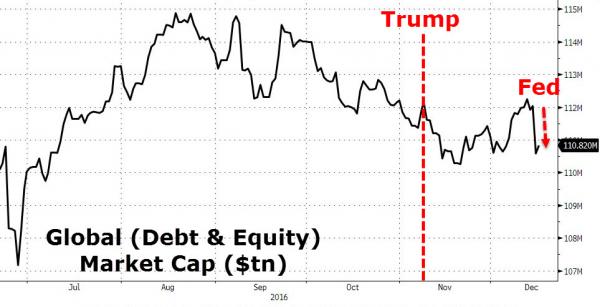
Johannes Vermeer The Concert 1663
Stolen from Gardner Museum March 18 1990, the single largest art theft in the world. Never recovered.



Fani Trump
https://twitter.com/i/status/1769110575693303866
Wade Fani
https://twitter.com/i/status/1769023193497456855

Trump cars
Speech with full context
pic.twitter.com/7ly7Cf3fEG— Elon Musk (@elonmusk) March 17, 2024



China is ready
https://twitter.com/i/status/1769033617643123112

J6
FLASHBACK: ⚠️ Body cam footage emerges from inside the senate chamber CHALLENGING THE NARRATIVE created by the J6 committee..pic.twitter.com/sucNCQq4AR https://t.co/qTODEhfK2S
— Chuck Callesto (@ChuckCallesto) March 17, 2024

Britain should consider conscripting citizens into the military to deter Russian aggression, Latvia has said…

A recruitment poster used in 1914 to encourage civilians to enlist for the First World War


“..for the American automobile industry and the whole country..”
• Trump Warns Of ‘Bloodbath’ If He Loses Presidential Vote (RT)
Former US President Donald Trump has warned of a “bloodbath” for the American automobile industry and the whole country if he doesn’t win a second term as a result of the vote on November 5. Trump made the remark during a rally in Vandalia, Ohio on Saturday while he was speaking about his plans to protect US carmakers from Chinese competition. The former president addressed China’s leader Xi Jinping from the stage, saying that “you and I are friends, but… those big monster car manufacturing plants that you’re building in Mexico right now… you’re going to not hire Americans and you’re going to sell the cars to us, no.” “We’re going to put a 100% tariff on every single car that comes across the line, and you’re not going to be able to sell those cars if I get elected,” the presumptive Republican nominee in the election added.
Trump urged Americans to vote for him in the fall, saying: “Now, if I don’t get elected, it’s going to be a bloodbath for the whole – that’s gonna be the least of it. It’s going to be a bloodbath for the country. That’ll be the least of it.” Later in his address, he also cautioned the crowd that “if this election isn’t won, I’m not sure that you’ll ever have another election in this country.” Trump’s speech that evening was mostly improvised as he complained about not being able to use the teleprompter due to strong winds. “I can’t read this damn teleprompter. This sucker is moving. Like reading a moving flag in a 35-mph wind,” the 77-year-old said.
The team of US President Joe Biden interpreted Trump’s mentioning of a “bloodbath” as a threat of “political violence” from their rival. “He wants another January 6, but the American people are going to give him another electoral defeat this November because they continue to reject his extremism, his affection for violence, and his thirst for revenge,” Biden’s campaign spokesman James Singer said in a statement. Trump campaign spokeswoman Karoline Leavitt responded to the accusations later on Saturday, telling CNN that “crooked Joe Biden and his campaign are engaging in deceptively out-of-context editing.” Leavitt clarified that the former president was speaking exclusively about the country’s car manufacturing industry. “Biden’s policies will create an economic bloodbath for the auto industry and autoworkers,” she said.
UPDATE: Surprising, Mike Pence defends Trump, says, "The president was clearly talking about the impact of imports devastating the American automative industry." After this, would you say Pence is an honest man? WATCH pic.twitter.com/CmVLa60HWm
— Simon Ateba (@simonateba) March 17, 2024
https://twitter.com/i/status/1769414275888566776
SUPERCUT!
Trump critics would never use a term like “bloodbath” pic.twitter.com/6dSTMwsfJa
— Tom Elliott (@tomselliott) March 17, 2024

Fun for the whole family…
• Leftist Corporate Media Unleashes Trump “Bloodbath Hoax” (ZH)
Corporate media and their woke allies on the Biden/Harris social media campaign team launched a disinformation and misinformation propaganda campaign against former President Trump, purposely misconstruing his speech at an event on Saturday. The blatant disinformation and misinformation by leftist newspapers, radicals in the Biden administration, and even Democrat lawmakers have been on full display over the last 15 hours. There has also been an awakening on X of just how bad Democrats are at propaganda – and they can’t even make it believable anymore. Let’s begin with the actual speech. On Saturday evening, X account EndWokeness posted a video of Trump at a campaign rally in Vandalia, Ohio. In it, Trump tells the audience that the American automobile industry will be a bloodbath if he’s not re-elected because the Biden administration will allow Chinese cars to flood the market.
https://twitter.com/EndWokeness/status/1769245792831701070
Almost immediately, legacy media outlets, such as NBC News, ABC News, and Politico, among others, took Trump’s speech entirely out of context… Then, the official X account of Biden/Harris trimmed down the clip to just nine seconds, taking Trump’s speech even more out of context. The Biden/Harris X account even released this ridiculous statement:

And the ‘Bloodbath Hoax’ by Democrats was even pushed on CNN this morning by the best stock trader who has ever lived:
Pelosi just told CNN that Trump might "exact a bloodbath" if he loses
The Bloodbath Hoax is in full swing pic.twitter.com/iEF8oQhmu8
— End Wokeness (@EndWokeness) March 17, 2024
Meanwhile, Elon Musk commented on the absurd propaganda, saying, “Legacy media lies.” Musk added, “Yup, hoax-making in process. And it is surprisingly effective!”
Legacy media lies https://t.co/3yQHajk5BE
— Elon Musk (@elonmusk) March 17, 2024
“Please send links from this platform to your friends who are still being misled by the legacy media!” said Musk. The disinformation and misinformation campaign by the Democrats this weekend is right out in the open. And they’re not even good at it! And you wonder why trust in corporate media is imploding to record lows as Americans are tired of being lied to for years. The result of breaking out of the corporate/government propaganda matrix has been the flood of Americans finding their news on X.

“..the “whole world is laughing at what is happening” in the US..”
• US Is Not A Democracy – Putin (RT)
Russian President Vladimir Putin has said that by criticizing democratic processes in other states, all while using their own administrative resources to suppress one of American presidential candidates, Washington has become a laughing stock of the rest of the world. Speaking to the journalists at his campaign headquarters in Moscow on early Monday morning, after the preliminary results indicated his victory with over 87% of the vote in the country’s presidential elections, the Russian leader said that the “whole world is laughing at what is happening” in the US. “We are behaving with more restraint than their opponents in other countries, but this is just a catastrophe, not a democracy – that’s what it is,” Putin said.
Putin noted that the US administration is using all its power and resources to attack one of the presidential candidates, apparently referring to former president Donald Trump, who is facing a litany of lawsuits despite being the frontrunner and virtually the only remaining Republican hopeful. In a pre-election interview earlier this week Vladimir Putin said that Russia does not meddle in foreign elections and will work with any elected US president. “I think it’s obvious to everyone that the American political system cannot claim to be democratic in any sense of the word,” he said in an interview with journalist Dmitry Kiselyov. Putin refused to comment further on the current presidential campaign in the US, but described the atmosphere as becoming “increasingly uncivilized.”

“..they will emerge as a dominant political country as Europe crumbles in the confusion of their own jealousy, envy, greed, and berserk belligerency.”
• West’s Aggression Unites Russian People Behind Putin (Sp.)
“This is a great day for Russia,” declared former US State Department counterterrorism analyst Scott Bennett as early results showed a landslide victory for Vladimir Putin in 2024’s presidential contest. Bennet made the claim during an interview with Sputnik as it was revealed a record high number of Russians participated in the election. “The record turnout of the Russian people and the record landslide of Vladimir Putin… indicate the following,” said the former Army officer. “One, that the Russian people see [that] President Putin has the best hope for moving the people and culture and country forward in a prosperous, healthy, traditional way. Two, the Russian people see themselves unified in one voice, and together, oppose the violent economic, diplomatic and informational war that has been waged against them and President Putin by the West for the last 10 years.”
“And, three, the Russian people are prepared to face any challenge and realize their strength in unity is what empowers them to withstand the aggression against them,” he concluded. Russia was met with political condemnation and economic sanction in 2022 when President Vladimir Putin sent troops to carry out a special military operation in the Donbass region. Western countries portrayed the move as an act of unprovoked aggression and imperial conquest. Putin asserted the decision was inevitable, claiming Ukraine was being transformed into an anti-Russia force that threatened Moscow’s national security. Recent revelations of longtime CIA involvement with the Kiev regime have since proven the Russian president’s claims. A fierce information war has been waged against Moscow in recent years, with observers saying the West’s attempts to discredit Russia’s presidential election represent the latest intensification of the campaign.
“The West is trying to compromise President Putin‘s victory because they have always feared him,” claimed Bennett. “And now with this victory they will especially fear him, and become increasingly loud, obnoxious, and hostile because they understand this landslide victory will inspire the Russian people to greatness and boldness to challenge – not just withstand – and overcome the European-American sanctions against them.” “This will also greatly inspire the rest of the world to stand shoulder to shoulder with Putin,” the analyst said. Bennett claimed Putin’s convincing victory will frustrate attempts to divide and weaken Russia’s centuries-old civilization. Two years ago, the US-government sponsored Helsinki Commission held a hearing on its plans to balkanize Russia under the pretext of “decolonization.” The country has long been seen as a threat to Western and US hegemony with its vast territory, wealth of resources, and cultural resilience.
Former US Vice President Dick Cheney once proposed carving Russia up into several smaller countries, while ex US National Security Advisor Zbigniew Brzezinski advocated transforming it into a “loosely confederated” union of republics. The United States employed such tactics in the former Yugoslavia and has openly admitted to funding separatists in China to erode national unity. “The West understands that with Putin’s victory they have lost the chance to dismember and cannibalize and weaken the Russian government, culture, and people,” said Bennett. “This is significant because the West’s strategy has always been to disintegrate and steal Russian resources.” “This is a great day for Russia and it gives new hope and promise that the future has a greater chance for peace and stability with President Putin at the helm of Russia than it would without him,” he concluded. “Moving forward we will see the Russian people stand with one voice, one heart, and one vision, and they will emerge as a dominant political country as Europe crumbles in the confusion of their own jealousy, envy, greed, and berserk belligerency.”

“..a world without Russia is a world that cannot exist.”
• Putin’s ‘Dedicated Work’ Added to Reinvigorated Russia – Scott Ritter (Sp.)
Speaking to Sputnik, former US Marine Corps Intelligence Officer Scott Ritter looked back at Putin’s previous years of presidency in light of the Russian head of state’s election victory. According to Ritter, the process of reinvigorating the Russian nation was one of the key achievements by Putin. One should understand that this process “didn’t happen in a vacuum” and was “the byproduct of a quarter century of dedicated work on behalf of Vladimir Putin for Russia and the Russian people,” the ex-US Marine Corps intelligence officer said. He recalled Putin’s state of the nation address to the parliament last month, when the Russian president talked about “the pride that Russians have in their country, the pride he has in being a Russian leader, that Russia is a civilization that must be taken into account by the rest of the world, that a world without Russia is a world that cannot exist.”
It seems, however, people “don’t understand where this is coming from,” per Ritter. “You see, the root of all of this passion for Russia comes from the decade of the 1990s, the time when the very existence of the Russian state, of the Russian people, of the Russian nation was being called into question. It came in the aftermath of the collapse of the Soviet Union. It was born of the dark times of the failure of perestroika,” which saw former Soviet leader Mikhail Gorbachev’s “failed gambit to transition from a communist society into one where Western market capitalism could prevail,” Ritter noted.
At the time, he went on, “criminal oligarchs took over, hijacked the Russian economy on behalf of ostensibly western allies, who weren’t true allies, rather people […] who were seeking to dominate Russia politically and economically. This was the decade that Vladimir Putin grew into political prominence,” the former US Marine Corps Intelligence Officer pointed out. “Vladimir Putin was a product of the 1990s. He saw the reality of the 1990s and he understood that Russia could never allow itself to go back to those times. He understood that if Russia didn’t break free of the path that it was headed on during the decade of the 90s, there would be no Russia,” Ritter concluded.

“I’ve never been able to do that. He’s a much better salesman than me..”
• Zelensky ‘One Of The Greatest Salesmen In History’ – Trump (RT)
Donald Trump, the 2024 Republican presidential frontrunner, has claimed that Vladimir Zelensky is one of the “greatest salesmen” he has ever known, as the Ukrainian head of state manages to leave Washington with pockets full of cash every time he visits the US.During a campaign rally in Vandalia, Ohio on Saturday, Trump also shared his views about providing billions of dollars in support to Kiev. The former president reiterated his earlier idea that the US should lend money to Kiev instead of simply handing it over. “We should loan them the money, not send them the money, so that if they do make it – they are against tremendous odds – they pay us back,” Trump said. “Loan them the money, let them be a little bit like they have to be a little nice… Loan them the money, don’t just hand them a check for $60 billion,” he exclaimed.
“I tell you, Zelensky is one of the greatest salesmen in history. Every time he comes to the country, he walks away with $50 or $60 billion,” Trump said. “I’ve never been able to do that. He’s a much better salesman than me,” he added. Since the beginning of the conflict between Russia and Ukraine in February 2022, Washington has been Kiev’s primary backer, having provided it with around $113 billion in military, economic, and humanitarian aid. Trump, US President Joe Biden’s presumptive Republican challenger in this November’s election – said last week that NATO countries “laugh at the stupidity of the United States” for spending so much money on Ukraine, and must “pay their bills.”
Biden is currently pushing Congress to pass a $95 billion foreign aid bill that includes more than $60 billion worth of additional military aid for Kiev. He has claimed that Ukraine would lose more territory to Russia if the bill is not approved. The administration’s request – which was greenlit by the Senate – has stalled in Congress because of Republican opposition. On Tuesday, the Biden administration said that Washington would send a new military aid package to Ukraine worth $300 million. The White House also looked at options for seizing some $285 billion in Russian assets frozen in 2022 and using the money to purchase Ukraine weaponry.
https://twitter.com/i/status/1769133267175829602

“There is no unity between heterosexual white males mainly from the South, and sexual perverts, feminists, people of color, and the higher command that restricts white heterosexual promotions and requires its only warriors to submit to “sensitivity training.”
• The Alleged Superpower, USA, No Longer Has a Military (Paul Craig Roberts)
“West Point Drops “Duty, Honor, Country” from Its Motto and Replaces It with “Army Values” in Its Mission Statement”. Does this mean that “duty, honor, country” are no longer Army values? Are we moving toward a military academy whose values will be transformed in keeping with the woke ideology that has taken over the universities, public schools, Democrat Party, corporations, and media? Will the academy’s values be “transgenderism, equity, and open borders”? Time will tell. We can see why honor and country have to go. The last time the US military fought a war that could be claimed was “defending the country” was World War II. The Korean War was about preventing unification of Korea under the communists. The Vietnam War was about this and also defending the “Domino theory.” The Middle East wars were fought for the benefit of Israel. The Ukraine war was orchestrated as a strategy against Russia. The Israeli-Hamas war was intended to be a prelude for an attack on Iran.
Actually, all wars are fought for the benefit of the power and profit of the US military/security complex. Most of these wars were about bombing women and children. The notion that these murdered women and children were a threat to the United States is so far-fetched as to be insane. The question before us concerned civilians of the United States and the military veterans and retired officers is: Who is it that is destroying the US Military and its traditional values? The US military has turned off real warriors. The US military today is a tower of babel. There is no unity between heterosexual white males mainly from the South, and sexual perverts, feminists, people of color, and the higher command that restricts white heterosexual promotions and requires its only warriors to submit to “sensitivity training.” Sensitivity training means one thing only: that a white person must accept that compared to “people of color” you are a second class citizen.
This is the American world today. Little wonder no military service can meet its recruitment needs and is talking about enrolling immigrant-invaders to “defend” the country they themselves have violated. “Duty, honor, country” to be displaced by “Army Values” is for me and my generation a sacrilege. To witness the Superintendent of West Point, the Biden Secretary of the Army, and the Secretary of Defense submit to, or is it to orchestrate, this sacrilege tells me that the future purpose of the US military is not to protect the United States of America from invasion, but to serve the interests of the ruling elite. Indeed, the current tyrannical regime in Washington has declared open borders and is flooding America with immigrant-invaders. The same tyrants asserting American hegemony are pellmell destroying America. And dumbshit Americans will vote for this anti-white, anti-American regime that is destroying them. A country half of whose population is committed to its own destruction is already destroyed.

“They [Estonians and other EU members] are sending their scraps to Ukraine and later buying brand new war materials for themselves, using EU money..”
• European ‘Peace Fund’ Stoking War in Ukraine (Babich)
German Chancellor Olaf Scholz, French President Emmanuel Macron, and Polish Prime Minister Donald Tusk recently vowed to procure more weapons for Ukraine at a meeting in Berlin. “A new era is dawning,” claimed Macron, while Poland’s Tusk lauded: “We want to spend our money on Ukraine.” But a closer look shows that European taxpayers’ money “spent on Ukraine” will go to a scheme called the European Peace Facility, which since its inception has been promoting war instead of peace and enriched shady operators. The problems bothering the three European leaders in Berlin seem clear. A $60 billion bill aimed at supporting Ukraine’s “war effort” has got stuck in the US Congress and $300 million worth batch of arms that the US recently sent to Kiev is obviously not enough to stop the gradual retreat of Zelensky’s troops.
So, Scholz, Macron and Tusk felt an urgent need to create the impression that “Europeans are ready to step in” and compensate for the military-industrial complex of the United States, with the EU sending deadly “gifts” to Ukrainians. This reimbursement is supposed to be done through the grossly misnamed and off-budget scheme European Peace Facility (EPF). The EPF fund was established in 2021 and was initially used to reimburse European producers of arms that were sent to “EU-friendly dictators in Africa” – an expression used by the fund’s critics in Western media. But from February 2022, the EPF started operating with billions and devoted itself entirely to arming Russia’s adversaries in Ukraine and other post-Soviet countries. On the surface, the EPF’s operations make an impression: “The EU agrees to €5 billion in Ukraine military aid,” “EU cash for Ukraine” – such headlines were omnipresent in the Western media last week. The EU member countries’ envoys in Brussels recently indeed agreed to increase the EPF’s assets to €17 billion, of which €11 billion are meant for Ukraine. (So far, the EPF has already spent €6.1 billion of taxpayers’ money on supplying Zelensky’s regime with arms.)
However, the European Conservative, a Budapest-based media outlet, reports that “it is theoretically possible that no actual money reaches the EPF under the agreement.” Why? The EU has become a victim of its own hypocrisy. According to the EU’s legislation, the European Union is a peaceful organization that cannot legally finance any war effort directly, despite member countries fighting in just about all the major wars since 1991 – from Iraq and Afghanistan to Libya and Yugoslavia. Hence the need for this “peace” fund, which uses European money, but legally is not a part of the EU budget system with its strict regulations, the outlet writes. So, all 27 countries of the European Union are supposed to make contributions to the EPF, depending on the relative size of each country’s economy. However, there is a provision that makes it possible for every country to replace its share in the obligatory payment of €5 billion by “an in-kind donation.”
This means that instead of donating money, Estonia or Germany could just “donate” weapons (including old ones) to this venerable “peace” fund. This opens the door to schemes. “The fine print specifies that for every $2 worth of military equipment donation member states can deduct $1 from their required money donation to EPF – with no limit on deductions,” The European Conservative writes. So, if we read the fine print, the news about the €5 billion ‘sacrifice’ of EU member states for the Ukrainian Army is not quite accurate: Germany, for example, may not pay an additional cent to the fund. Here is why. As Politico reports, Germany has been the largest donor for the Ukrainian military, having given €17.7 billion in military supplies. Now Germany is supposed to pay €1.2 billion a year into the EPF, but as long as it gives at least €2.4 billion in weapons to Ukraine in a year, Germany is free of any obligation to pay money to the fund.
However, if Germany is the biggest donor, then Estonia is the smartest schemer. Earlier this year, Politico accused Estonia of using a loophole in the rules that the European Council adopted for the EPF. The bureaucrats in Brussels forgot to specify how EU members should calculate the procurement price of the weaponry they send to Ukraine’s war machine via the European Peace Facility. So, Estonia (followed by Latvia and Lithuania) vastly overestimated the value of the old Soviet weapons that it provided. However the EPF still gave Estonia the money, which the officials later used to satisfy their country’s defense and consumer needs. “They [Estonians and other EU members] are sending their scraps to Ukraine and later buying brand new war materials for themselves, using EU money,” Politico writes.

“..huge problem and a devastating defeat for the West.”
• ‘NATO’s Going to Suffer Defeat’ in Proxy War With Russia – Mearsheimer (Sp.)
“It’s becoming manifestly clear to more and more people that Kiev is gonna lose the war,” John Mearsheimer, an American political scientist and Professor at the University of Chicago, told the YouTube channel Duran, referring to the Ukraine conflict. “We can talk about exactly what it means ‘cause that is a very complicated issue, but there’s no question that […] the Russians are going to win,” while Ukraine “is going to suffer a defeat and indeed NATO’s gonna suffer a defeat as well,” Mearsheimer pointed out. According to the pundit, “there’s no plausible strategy” for Kiev and Brussels to rectify the situation, something that he said is a “huge problem and a devastating defeat for the West.”
What’s more, there are “no formidable military forces in Europe” that could fight in Ukraine or “even provide much deterrence” to Kiev without US support, the professor added. The comments come after French President Emmanuel Macron recently said in an interview that he doesn’t rule out a potential scenario of his country’s military conducting an operation to “confront Russian troops” in Ukraine. Moscow responded by making it clear that such a development would inevitably lead to a direct military conflict between Russia and NATO. Kremlin spokesman Dmitry Peskov called discussing the possibility of sending “certain contingents to Ukraine an important new element of rhetoric.”
Russian President Vladimir Putin, for his part, warned that the possible deployment of a European military contingent to Ukraine would not change the situation on the battlefield and would only lead to serious consequences for the Kiev regime. European head of states, NATO leadership and the White House, in turn were quick to say that they were not considering sending their militaries to Ukraine, with France’s Foreign Minister Stephane Sejourne not ruling out that the French military could be send there for demining operations and weapons production on Ukrainian territory. In a separate development, Putin stressed during last month’s State of the Nation address to parliament that Russian forces are “firmly holding the initiative” and are successfully advancing in a spate of operational areas in the special military operation zone.”

“..The former Democratic presidential hopeful is known for her own political ambitions with some observers suggesting that she may try to return to politics if Biden and Harris completely lose steam..”
• Kamala Harris Urged to Step Down Ahead of 2024 Election (Sp.)
A Washington Post editorial called on the US vice president to step aside as she has become a “burden” to the Democratic ticket. Pulitzer Prize-winning WaPo politics columnist Kathleen Parker subjected Vice President Harris to sharp criticism this week. Despite Harris having an impressive resume, “pizzazz”, and a reputation for being a tough prosecutor, she has failed to meet the public’s expectations, according to the journalist. “Her performance as second in command has been disappointing, to say the least,” Parker highlighted. According to FiveThirtyEight poll aggregator, just 37.2 percent of Americans approve of the incumbent vice president while 52.3 percent disapprove. Parker pointed out that Harris “was a colossal failure as border czar” and used to “embarrass her boss with her sometimes inane, rambling remarks and a laugh that erupts from nowhere about nothing obvious to others.”
The Democratic Party’s “indulgence of identity politics” is not allowing President Joe Biden to fire Kamala, a Black woman of Asian descent, at the time when she has become a “burden to the Democratic ticket,” continued Parker. What’s more, one should bear in mind that Harris could take the reins of US politics if something happens to Biden: “The seriousness of this situation can’t be overstated,” the journalist warned. “Biden’s diminishing faculties, notwithstanding his relatively successful State of the Union address, and his increasing physical frailty are concerning. Every honest person knows he’s not in top form.” “There’s no reason to think her ranking would spike were she suddenly promoted to the Oval Office. Instead, most signs point to disaster,” Parker stressed. The reporter insisted that Biden could tap “someone else with executive experience”, who “would be ready to take the reins should events require it.”
The op-ed came on the heels of ex-Special Counsel Robert Hur testimony before American lawmakers about his investigation into Biden’s mishandling of classified records. Hur stressed that Biden willfully retained classified records when he was a private citizen, which was illegal. The former special counsel also underscored that despite not bringing charges against Biden he did not exonerate the president. Hur in his report described the president as a “sympathetic, well-meaning elderly man with a poor memory”. The description cast doubt on Biden’s mental capacity and his 2024 reelection campaign, according to the press. Former Secretary of State Hillary Clinton was quoted as saying in February 2023 that Harris wouldn’t be able to win the Democratic primaries due to the lack of “political instincts.” The former Democratic presidential hopeful is known for her own political ambitions with some observers suggesting that she may try to return to politics if Biden and Harris completely lose steam.

“..we ourselves have never had the opportunity to understand what it is like to have a permanent enemy that can never be conquered..”
• The Main Problem With EU diplomacy (Bordachev)
A recent incident in which a group of ambassadors from EU states refused to attend a meeting with Russian Foreign Minister Sergey Lavrov perfectly encapsulates the state of European diplomatic culture today. The reason is simple – over the past 30 years, the need to be diplomatic in the traditional sense of the word has almost disappeared. Despite the fact that the envoys of EU countries in Moscow are relatively well-educated and not stupid, these individual peculiarities no longer count for much. Everything is determined by their dogmatic world view, which has become the opposite of what is necessary for civilized relations between states. And those observers who believe that in today’s conditions, it has become unnecessary to have ambassadors of individual EU states in Moscow, have merit in their arguments. After all, they do not decide anything and cannot fulfil their duties in the traditional accepted way. It would be much easier for everyone if these people – both great and not so great – would return to their countries for a while.
There are several reasons why Western Europeans have ventured so far on the road to their own, different world. First, they experienced a colossal upheaval just over 30 years ago. Since the 16th century, these states had been neighboring Russia, which they could not defeat. Dominic Lieven, a fine British scholar of Russian Empire origins, wrote in one of his works that the Russians were the only people Western Europeans had to deal with who were capable of fighting for their special, independent niche in the modern world with boundless courage, perseverance, and self-sacrifice. Consider these words – we are the only civilization against which the West has attempted to act aggressively, and failed to achieve its goals. All the rest – the Great Empire of China, the ancient civilization of India, and many others – were unable to withstand the decisive thrust of the West, which for 500 years had been expanding the frontiers of its power by fire and sword. They were beaten, even if they were able to restore their statehood after some time.
Our country was never defeated. But let’s try to put ourselves in the Western Europeans’ shoes and understand their emotional state. For centuries, they have been living with a trauma called ‘an independent Russia’. However, we ourselves have never had the opportunity to understand what it is like to have a permanent enemy that can never be conquered. So, when the USSR suddenly collapsed in 1991 and the unified state disintegrated, Western Europe found itself in a situation it had never experienced before. Overnight, the most unfulfilled wish of generations of European politicians and military leaders came true. All by itself, without a decisive military clash, and with the Russians’ full of desire to join the ‘European family’, even as pupils. Such a shock could not pass without serious consequences for the psyche of the statesmen and ordinary citizens of these Western European states.
Their entire foreign policy culture was based on the fact that Russia would never be pushed around or told what to do. Suddenly, the West felt it had won the Cold War without firing a single shot. In a state of fantastic emotional upheaval, the Western Europeans began to build relations with Russia as if it had finally been defeated. For several years, Moscow accepted the rules of the game that the West imposed. It took into account the wishes of the Western Europeans in the economic sphere and developed its foreign relations with an eye to how this would affect the main goal – which was gradual ‘integration’ with the EU. In the new circumstances, the bloc found itself in the position of a demanding teacher, offering numerous ‘partnership’ programs with two simple objectives. First, to secure the interests of Western European business and make the Russian market even more open to it. Second, to ensure that Moscow was complying with its instructions.

And it’s not even Boeing…
• Only 15% of F-35s May Be Combat Capable (ET)
A September 2023 Government Accountability Office (GAO) report on the F-35 revealed some shocking statistics on just how unready hundreds of billions of dollars worth of F-35s are to provide actual combat power. In fact, the report indicated that only 15 to 30 percent of F-35s may be capable of combat. But if you were to read a typical article in the media, you might believe that, on average, some 55 percent of F-35s are combat-capable. However, you would be wrong. You see, when the average person sees a report declaring that 55 percent of F-35 combat aircraft are “mission capable,” they assume mission capable equals combat capable. But in doing so, they are being deceived The deception comes out of how the F-35 program office and the whole of the Department of Defense define “mission capable.” It turns out that the DoD definition of “mission capable” does not mean combat capable. What it means is that an aircraft can fly and perform at least one mission.
So, a plane designated as mission capable might be capable of doing some type of combat, but it might not. Instead, the mission it might be capable of executing could be testing or training, or some other mission that does not involve combat. And even if it is considered capable of testing or training, it might not be capable of doing the full gamut of testing or training you would expect from a fully functional aircraft. Likewise, it could still be classified as mission capable even if it is only capable of executing a portion of the combat-type missions it is supposed to be able to perform. Hence, within the environs of the military–industrial–congressional complex, “mission capable” is a highly ambiguous term that allows for a whole lot of gaming of accountability metrics. And it tells us very little.
Still, it is worth noting that at a 55 percent mission capable rate, the F-35 fleet is well below program targets of 90 percent for the F-35A (Air Force) and 85 percent for the fighter’s F-35B (Marine Corps) and F-35C (Navy) variants. In other words, the F-35 fleet as a whole is nowhere near meeting its mission capability goal of being able to do anything at all. However, there is another metric that is more useful: “full mission capable.” It turns out that “full mission capable” F-35s are supposed to be able to perform all the missions for which they were contracted, including combat-oriented missions, surveillance, training, testing, show of force, etcetera. This metric is not often publicized, but in the case of the F-35, the watchdog side of the GAO actually did a detailed report of the problems and issues with the F-35 that included how the F-35 fleet looked from the “full mission capable” perspective.
Even for someone who is an F-35 realist, the results are shocking. Not only is the F-35 fleet’s full mission capable rate in the neighborhood of 30 percent, the full mission capable rate of the Marine Corps’ F-35B was a miserable 15.5 percent in March 2023. More current full mission capable rates have not been published, but given the program’s ongoing problems and issues, including unreliable engines that are now under-specced due to feature creep, it is highly unlikely the situation has improved in the last year.

Where are the Clintons?
• Haiti Health Care System Collapses Amid Unrest, Hospitals Looted (Sp.)
The attack on Haiti’s capital has devastated the country’s already fragile health care system, with more than half of Port-au-Prince’s medical facilities out of service because they have been left without medicine amid gang violence, The New York Times reported Sunday. The State University Hospital, the largest in Haiti, is closed due to a lack of donated blood and fuel for generators, the report said. Haitian doctors predict a spike in maternal and infant mortality as thousands of women are forced to give birth at home in the coming weeks, the newspaper added.
On February 29, gang violence erupted in the downtown area of the capital Port-au-Prince while Haitian Prime Minister Ariel Henry was visiting Kenya to seek an agreement for the deployment of foreign forces in Haiti to fight organized crime. The gangs said their goal was to prevent the prime minister from returning to Haiti, and they stormed Haiti’s largest prison and freed an unconfirmed number of inmates. The Haitian government declared a state of emergency in the capital region. Haiti has long been mired in a social and political crisis that escalated after the assassination of President Jovenel Moise on July 7, 2021. The country has faced an unprecedented increase in the activities of criminal groups, while the humanitarian situation has deteriorated due to a multitude of natural disasters.

“The problem is that all of the land in New York, in the United States, is stolen Indian land.”
• Native American Lawsuit in New York Sheds Light on Dark History (Sp.)
“The doctrine of discovery refers to a principle in public international law under which, when a nation ‘discovers’ land, it directly acquires rights on that land,” according to a definition offered by Cornell Law School’s Legal Information Institute. “This doctrine arose when the European nations discovered non-European lands, and therefore acquired special rights.” More broadly, the doctrine of discovery can be described as an international law doctrine giving authorization to explorers to claim terra nullius [uninhabited land]… in the name of their sovereign when the land was not populated by Christians. It’s a theory that’s offensive to most modern ears -suggesting settlers have a right to violently confiscate territory in the name of religion- and it was acknowledged as such last year when the Catholic Church officially repudiated it. But the doctrine of discovery was cited by the United States highest legal authority as recently as 2005, when the US Supreme Court ruled against the indigenous Oneida Nation in a majority opinion authored by Justice Ruth Bader Ginsburg.
The Oneida people, the justice claimed, had no special rights in land they had inhabited for thousands of years before descendents of Europeans like Ginsberg crossed the Atlantic. New York State’s Onondaga Nation had filed a similar lawsuit just days before seeking compensation for territory they claimed their ancestors had been forced to sell against their will. The Onondaga have since reconsidered their strategy, taking their claim to the supranational Inter-American Commission on Human Rights. US media examined their story this week as the commission is expected to rule on the Onondaga’s claim in the coming months. “If we don’t admit that those things have happened, how do we move forward together?” asked Joe Heath, a lawyer for the Onondaga people. “The problem is that all of the land in New York, in the United States, is stolen Indian land.” Heath’s observation raises a thorny issue.
The US, for a time considered the world’s lone superpower after the Cold War drew to a close, has increasingly fashioned itself as a global arbiter and enforcer of morality. Ending genocide, toppling dictators, spreading democracy, and defeating communism are just some of the reasons offered by the United States to justify bloody interventions around the globe. But academics often dispute the validity of America’s self-perception as an authority on human rights, noting the country is unique among others as an historic settler colonial regime. “Settler colonialism is a form of colonization where a settler society entirely or partially replaces an indigenous people on their land,” explains the website Visualizing Palestine. Many countries trace their history back centuries or even millenia, recognizing a legacy of many historical inhabitants. Others continue a process of deliberately stamping out native influence, appropriating indigenous lands and killing their inhabitants.

“The culture at Boeing has been toxic to trust for over a decade now..”
• Boeing: How Much Trouble Is The Company In? (BBC)
Earlier this month the US regulator, the Federal Aviation Administration, said that a six-week audit of the 737 Max production process at Boeing and its supplier Spirit Aerosystems had found “multiple instances where the companies failed to comply with manufacturing quality control requirements”. The findings came shortly after another report into Boeing’s safety culture by an expert panel found a “disconnect” between senior management and regular staff, as well as signs that staff were hesitant about reporting problems for fear of retaliation. Adam Dickson, a former senior manager at Boeing who once worked on the 737 Max programme, agrees there is a gulf between executives and workers on the factory floor. “The culture at Boeing has been toxic to trust for over a decade now,” he says. “You can add safety steps, you can add procedures. But the fundamental issue of distrust makes those changes almost ineffective”, he claims.
Meanwhile, further evidence of how production problems could endanger safety emerged this week. The FAA warned that improperly installed wiring bundles on 737 Max planes could become damaged, leading to controls on the wings deploying unexpectedly, and making the aircraft start to roll. If not addressed, it said, this “could result in loss of control of the airplane”. Hundreds of planes already in service will have to be checked as a result. Boeing said based on the FAA audit it was continuing “to implement immediate changes and develop a comprehensive action plan to strengthen safety and quality, and build the confidence of our customers and their passengers.” But concerns about Boeing’s production standards are far from new.
Whistleblower John Barnett, who was found dead last weekend, had worked at Boeing’s factory in South Carolina from 2010 until his retirement in 2017. A quality manager on the 787 Dreamliner programme, he had claimed the rush to build planes as quickly as possible in order to maximise profits had led to unsafe practices. Among a number of allegations, he told the BBC that in some cases under-pressure workers had deliberately fitted substandard parts to planes on the production line. Boeing denied his claims. But his untimely death, which occurred between legal hearings in a lawsuit against the company, has focused new attention on them. The crisis at the aerospace giant is now causing problems for airlines. Ryanair has warned that delays to new aircraft deliveries will push up prices for passengers in Europe this summer. US carrier Southwest plans to cut its capacity this year because it can’t get hold of the planes it needs.
Some carriers may try to obtain Airbus models to replace the lost Boeings. But a wholesale transfer of orders from the American manufacturer to the European is simply impractical. Both have very full order books. Airbus has a backlog of more than 8,000 planes and Boeing more than 6,000. Airlines are already having to wait longer than they would like for new aircraft. Airbus has had its own supply chain problems, leading to late deliveries. There is a potential third player. The Chinese manufacturer Comac has developed the C919, a plane designed to compete with the 737 Max and the A320 neo. But that programme is still in its infancy. By 2028 it will be producing only 150 aircraft a year.




Net Zero
https://twitter.com/i/status/1769067749613928685

Durex
What’s The Moral Of This Story? pic.twitter.com/eOnMl67jji
— GIDI (@Gidi_Traffic) March 16, 2024

Just some love
he just wants some love ❤️ pic.twitter.com/mQqRlbSigi
— Nature is Amazing ☘️ (@AMAZlNGNATURE) March 17, 2024

Great White
https://twitter.com/i/status/1769223406690386340

Rescue
— Doglover (@puppiesDoglover) March 17, 2024

Squirrels
https://twitter.com/i/status/1769401762195063142

Octocar
— Out of Context Human Race (@NoContextHumans) March 17, 2024

Cookies
— Doglover (@puppiesDoglover) March 17, 2024


Support the Automatic Earth in wartime with Paypal, Bitcoin and Patreon.




